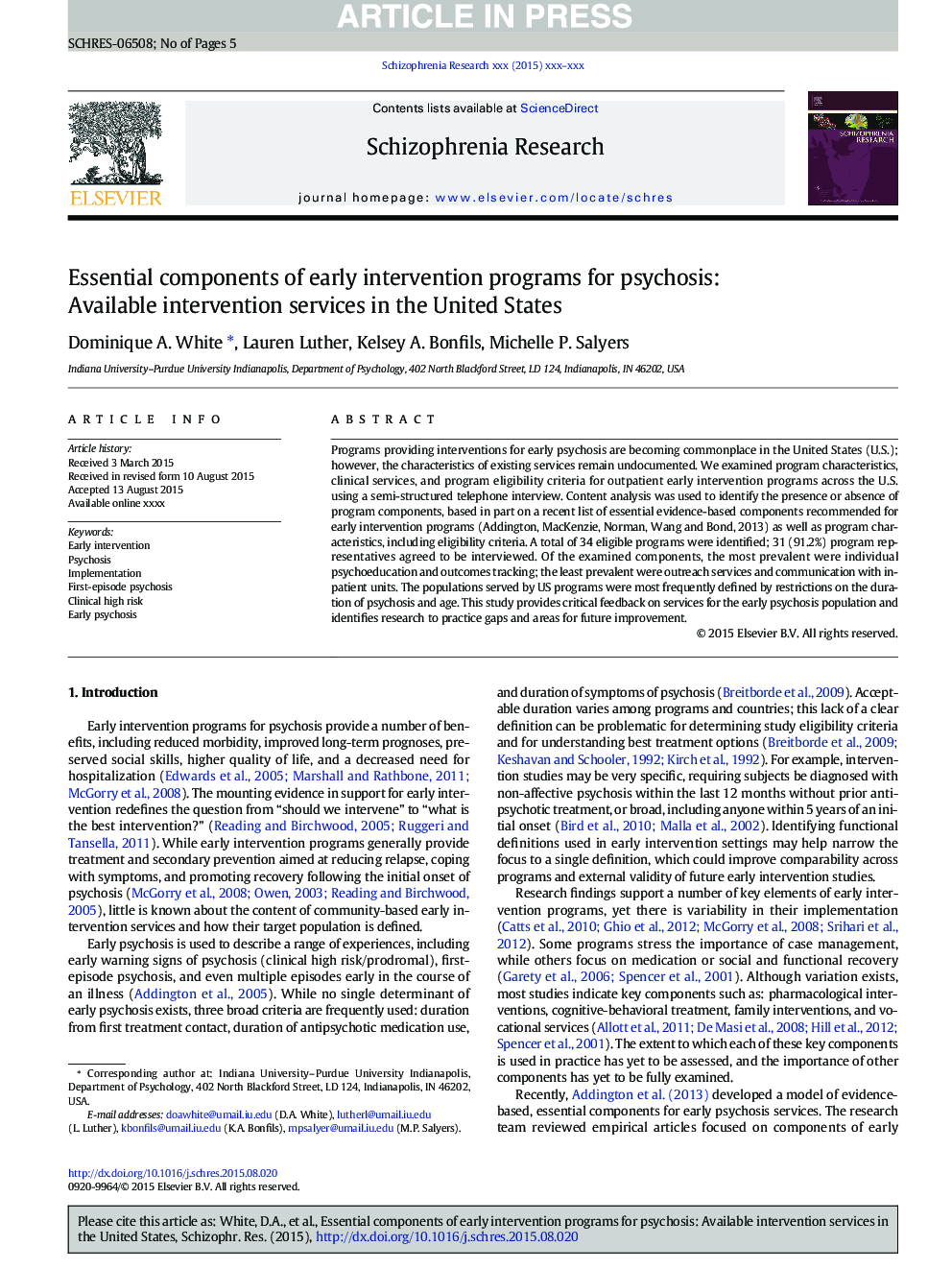| Article ID | Journal | Published Year | Pages | File Type |
|---|---|---|---|---|
| 6823481 | Schizophrenia Research | 2015 | 5 Pages |
Abstract
Programs providing interventions for early psychosis are becoming commonplace in the United States (U.S.); however, the characteristics of existing services remain undocumented. We examined program characteristics, clinical services, and program eligibility criteria for outpatient early intervention programs across the U.S. using a semi-structured telephone interview. Content analysis was used to identify the presence or absence of program components, based in part on a recent list of essential evidence-based components recommended for early intervention programs (Addington, MacKenzie, Norman, Wang and Bond, 2013) as well as program characteristics, including eligibility criteria. A total of 34 eligible programs were identified; 31 (91.2%) program representatives agreed to be interviewed. Of the examined components, the most prevalent were individual psychoeducation and outcomes tracking; the least prevalent were outreach services and communication with inpatient units. The populations served by US programs were most frequently defined by restrictions on the duration of psychosis and age. This study provides critical feedback on services for the early psychosis population and identifies research to practice gaps and areas for future improvement.
Keywords
Related Topics
Life Sciences
Neuroscience
Behavioral Neuroscience
Authors
Dominique A. White, Lauren Luther, Kelsey A. Bonfils, Michelle P. Salyers,
